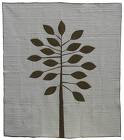Natural fibers
Natural fibers include those produced by plants, animals, and geological processes. They are biodegradable over time. They can be classified according to their origin:
Vegetable fibers examples include Seed fiber- cotton, hemp, jute, flax, ramie, and sisal
Animal fibers generally comprise proteins; examples include silk, wool, angora, mohair, spider silk, sinew, alpaca, catgut, wool and hair such as cashmere, mohair and angora, fur such as sheepskin, rabbit, mink, fox, beaver, etc.
Animal hair (wool or hairs): Fiber or wool taken from animals or hairy mammals. e.g. sheep's wool, goat hair (cashmere, mohair), alpaca hair, horse hair, etc.
Silk fiber :Fiber collected from dried saliva of bugs or insects during the preparation of cocoons. Examples include silk from silk worms.
Avian fiber: Fibers from birds, e.g. feathers and feather fiber.
Human-made fibers
Synthetic or man-made fibers generally come from synthetic materials such as petrochemicals. But some types of synthetic fibers are manufactured from natural cellulose, including rayon (Rayon is a very versatile fiber and has the same comfort properties as natural fibers), modal, and the more recently developed Lyocell
Polymer fibers
Polymer fibers are a subset of man-made fibers, which are based on synthetic chemicals (often from petrochemical sources) rather than arising from natural materials by a purely physical process. Such fibers are made from: polyamide nylon, polyester
Micro fibers
A micro fiber refers to synthetic fibers (fiber) that measure less than one “denier”. The most common types of micro fibers are made from polyesters, polyamides (nylon), and or a conjugation of polyester and polyamide.
Micro fiber is used in the manufacture of non-woven, woven and knitted textiles. The shape, size and combinations of synthetic fibers are selected for specific characteristics, including: softness, durability, absorption, wicking abilities, water repellency, electrodynamics, and filtering capabilities.
Micro fiber is commonly used for apparel, upholstery, industrial filters and janitorial products.
Monday, December 15, 2008
Fiber
Labels:
cotton,
Human-made fibers,
microfibers,
natural fibers,
rayon,
silk
Subscribe to:
Post Comments (Atom)

No comments:
Post a Comment